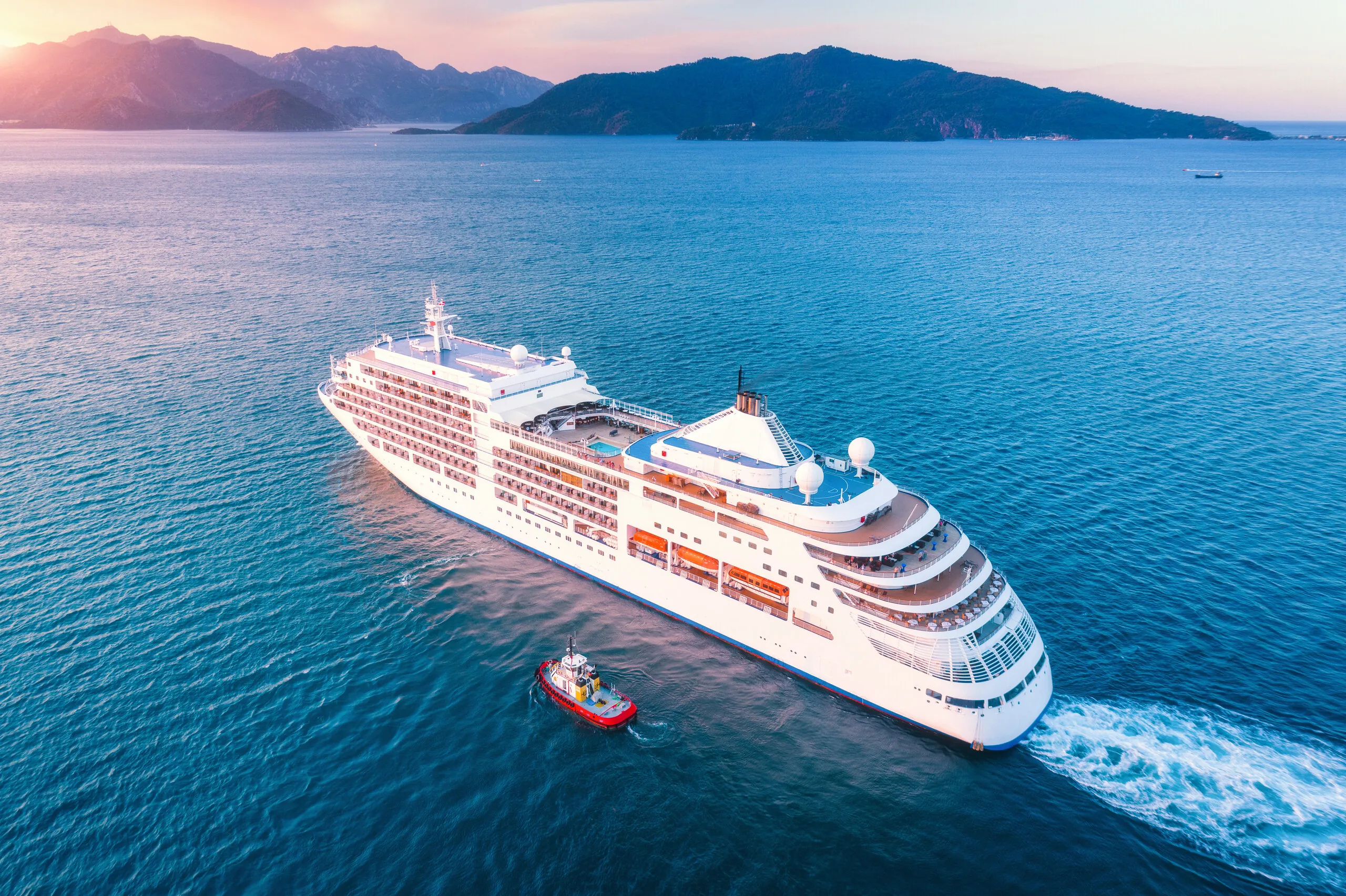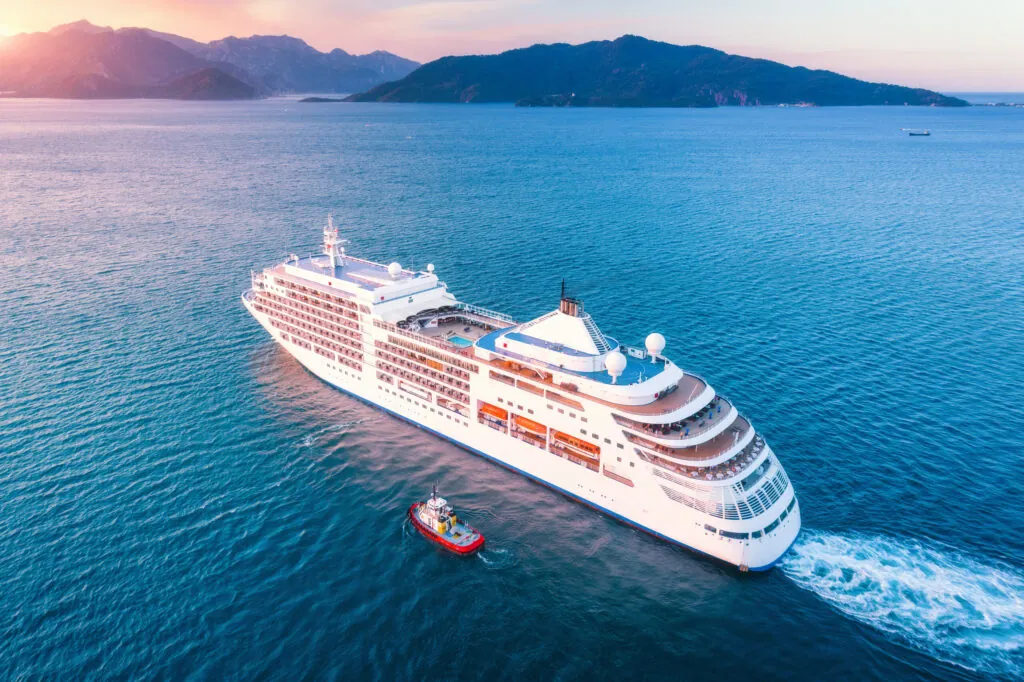When a cruise turns tragic and a loved one dies at sea, grieving families are left not only with emotional devastation but also with a confusing legal path. If the death occurred beyond U.S. territorial waters, a special federal law—The Death on the High Seas Act (DOHSA)—may govern your right to compensation.
This law is often misunderstood and can significantly limit your ability to recover damages. In this guide, we’ll explain everything you need to know about DOHSA, including when it applies, what compensation is available, and how it differs from state wrongful death laws.
What Is the Death on the High Seas Act?
The Death on the High Seas Act is a federal statute enacted in 1920 to protect the families of people who die due to negligence or wrongful acts on international waters. Over time, its use has expanded from maritime workers to include passengers aboard cruise ships and aircraft operating in international waters.
Why Was DOHSA Created?
DOHSA was originally designed to fill a legal gap. Before its passage, U.S. law did not provide a mechanism for families to sue if a loved one died more than three miles offshore due to someone else’s negligence. The law was meant to ensure financial recovery for dependents.
Who Is Covered Under DOHSA?
Anyone—crew or passenger—who dies beyond three nautical miles from the U.S. coast as a result of a wrongful act, neglect, or default can be covered under DOHSA. Most commonly, this includes cruise passengers and crew members.
When Does DOHSA Apply?
DOHSA only applies under very specific conditions.
The 3-Nautical-Mile Rule
To trigger DOHSA, the death must occur more than three nautical miles from the U.S. shore. This geographic line determines whether federal maritime law or state wrongful death laws govern the claim.
Death Must Be Caused by Negligence or a Wrongful Act
The law applies only if the death results from some form of negligence or fault. Accidental deaths that don’t involve a wrongful act may not qualify under DOHSA.
Common Cruise Ship Scenarios Involving DOHSA
DOHSA often comes into play in situations like:
- A passenger falling overboard in international waters
- Medical malpractice by the ship’s onboard doctor
- Fatal slips, falls, or injuries sustained during cruise excursions
What Compensation Can Families Recover Under DOHSA?
Understanding DOHSA’s limits on compensation is critical, as it differs significantly from typical wrongful death statutes.
What You Can Recover
Under DOHSA, families are only entitled to pecuniary damages. These are strictly financial losses, such as:
- Lost income from the deceased
- Funeral and burial expenses
- Loss of services like childcare or housekeeping
What You Cannot Recover
DOHSA does not allow compensation for:
- Pain and suffering
- Loss of companionship
- Emotional distress
- Punitive damages
This makes DOHSA unusually strict—and potentially frustrating—for grieving families seeking justice. Emotional loss, while very real, is not recognized under this federal statute.
Who Can File a DOHSA Wrongful Death Claim?
A DOHSA claim is typically filed by the personal representative of the deceased’s estate. This individual acts on behalf of the surviving family members or dependents.
Eligible Beneficiaries
The people who may benefit from a DOHSA claim include:
- Spouses
- Children
- Financial dependents
Proving Financial Loss
To succeed under DOHSA, the surviving beneficiaries must prove that they depended financially on the deceased. For example, a widow may show loss of household income, while children may demonstrate loss of educational support.
Challenges with Non-Earning Victims
If the deceased was not a wage earner—such as a child, retiree, or stay-at-home parent—the family may receive little to no compensation, because the law does not assign monetary value to emotional relationships.
How Is DOHSA Different from State Wrongful Death Laws?
Many families assume they can file a wrongful death lawsuit using the laws of their home state. However, if the death occurred more than three nautical miles offshore, state law no longer applies—DOHSA takes precedence.
Federal Law Preempts State Law at Sea
When a death happens at sea, federal law overrides state law. That means you must follow DOHSA’s rules, even if your state would have allowed broader compensation or a more favorable outcome.
Comparison: DOHSA vs. State Law
While DOHSA only permits economic damages, most state wrongful death laws allow for a combination of financial and non-financial losses. This often includes emotional distress, loss of companionship, and sometimes punitive damages meant to punish the negligent party.
How to File a DOHSA Wrongful Death Claim
Filing a claim under DOHSA is not the same as filing a typical wrongful death lawsuit. Because DOHSA is a federal law, these cases must be filed in federal court and follow different procedures than those in state court.
Step 1: Confirm Jurisdiction
First, confirm the death occurred more than three nautical miles from U.S. land. This is the key trigger for DOHSA’s applicability.
Step 2: Collect All Evidence
You’ll need:
- Medical records
- Cruise line incident reports
- Witness statements
- Proof of negligence
- Financial documents showing dependency
Step 3: Contact a Maritime Wrongful Death Attorney
These cases are complex and time-sensitive. An attorney who understands maritime law and cruise line litigation is crucial to ensure your rights are protected and your claim is properly filed.
Legal Challenges Families Often Face Under DOHSA
While DOHSA allows for financial recovery, it also presents numerous obstacles that families should be aware of.
No Compensation for Grief
The law does not recognize grief, suffering, or emotional trauma as compensable losses. This can be especially painful for spouses and parents.
Difficulty Proving Negligence
In many cruise-related deaths, the cruise line may deny liability or argue that the death was not caused by negligence. Proving otherwise often requires expert testimony and thorough legal investigation.
Cruise Line Tactics and Jurisdictional Issues
Cruise companies often operate under foreign flags and insert legal clauses in their passenger contracts requiring disputes to be handled in specific courts or countries. A skilled attorney can help you fight these attempts and keep your claim in U.S. federal court.
What Is the Statute of Limitations for DOHSA?
Under DOHSA, families must file their lawsuit within three years of the date of the death. If you miss this deadline, your case may be permanently dismissed, regardless of its merits.
Because of this, it’s essential to begin the legal process as soon as possible—especially if you’re facing resistance from the cruise line.
Why You Need a Maritime Wrongful Death Lawyer
Filing a DOHSA claim is not a do-it-yourself legal project. Maritime law is complex, and cruise lines often fight hard to avoid paying damages. A lawyer who specializes in wrongful death at sea can help you navigate jurisdictional issues, gather critical evidence, and pursue the highest possible compensation.
Without experienced legal counsel, you risk missing important deadlines, filing in the wrong court, or accepting a low settlement.
Frequently Asked Questions About DOHSA and Cruise Ship Death Claims
Can I sue a cruise line if my loved one died at sea?
Yes, you can sue a cruise line if your loved one’s death was caused by negligence or a wrongful act while at sea. However, if the death occurred more than three nautical miles from the U.S. shoreline, your legal claim will fall under the Death on the High Seas Act (DOHSA). This federal law limits the types of compensation you can seek, and you must file your lawsuit in federal court.
What does the Death on the High Seas Act cover?
DOHSA covers wrongful deaths that occur on the high seas—beyond three nautical miles from the U.S. coast—due to negligence or unlawful conduct. It applies to passengers and crew members on cruise ships, commercial vessels, and even aircraft. The law allows families to recover financial damages but excludes emotional or punitive compensation.
What kind of compensation can I recover under DOHSA?
Under DOHSA, families can recover compensation for pecuniary or financial losses only. This includes loss of income, loss of household services, and funeral expenses. However, DOHSA does not permit recovery for pain and suffering, emotional distress, or loss of companionship. This means that while some financial relief may be available, emotional damages are not legally recognized under this statute.
Who is eligible to file a claim under DOHSA?
The legal claim must be filed by the personal representative of the deceased person’s estate. This representative typically brings the action on behalf of surviving family members such as spouses, children, or other dependents. To be eligible for compensation, these survivors must prove that they suffered a direct financial loss due to the death.
Does DOHSA apply even if the cruise ship is registered in another country?
Yes, DOHSA applies regardless of the ship’s country of registration. Most cruise ships are foreign-flagged, but the law is triggered by the location of the death—not the vessel’s nationality. If the incident happened on the high seas and involved negligence or wrongdoing, DOHSA will apply even if the ship is registered outside the United States.
Contact The Cruise Injury Law Firm Today
If you have lost a loved one while aboard a cruise ship, you may be eligible to file a claim under the Death on the High Seas Act. But time is limited, and cruise companies often make these cases as difficult as possible.
Don’t wait. Speak with a maritime wrongful death lawyer who understands the complexities of DOHSA, international waters, and cruise ship litigation. The sooner you act, the stronger your case can be.
Your family deserves answers. Your loved one deserves justice. Contact The Cruise Injury Law Firm today to begin your legal journey.




